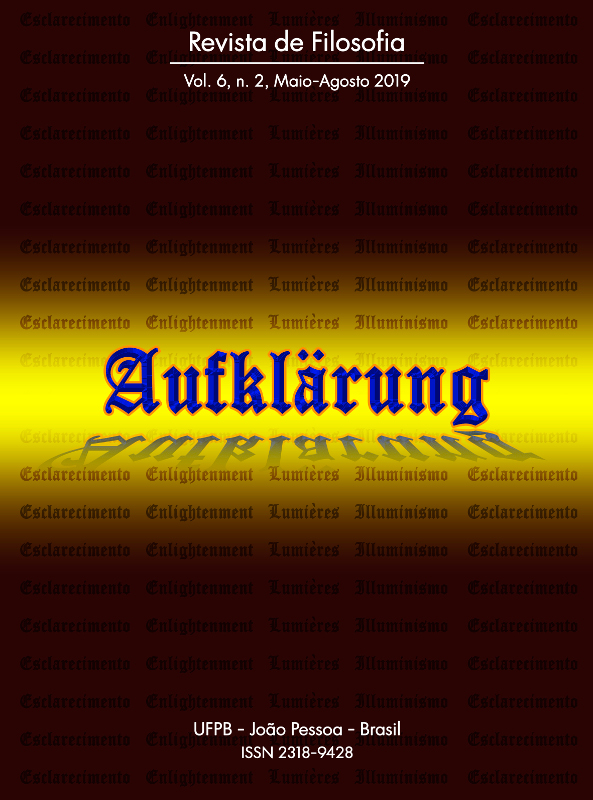Conceito estético de direito
DOI:
https://doi.org/10.18012/arf.2016.44940Keywords:
Direito romano, Ética, Aristóteles, EstéticaAbstract
O direito romano é lembrado, geralmente, por sua fase do dominato, que serviu de modelo para o direito privado do século XIX, em que os anseios imperialistas dos antigos entraram em conjunção com o estágio triunfante do modelo burguês de mundo. Não obstante, a era contemporânea exige mais uma vez o retorno ao passado do direito romano, dessa vez para resgatar e atualizar seu componente grego ou republicano, condição de possibilidade para que o direito se oriente pela razão sensível, pela aesthesis.Downloads
References
ADORNO, Theodor W. Dialectique négative. Paris: Payot, 1992
ARISTÓTELES. Ética a Nicômaco. São Paulo: Abril Cultural, 1973.
CICERONIS, M. Tulli. De oratore, Liber Primus, XLII, 188, (http://www.thelatinlibrary.com/cicero/oratore1.shtml).
CARBASSE, Jean-Marie. Manuel d’introduction historique au droit. Paris: Puf, 2002.
HABERMAS, Jürgen. Théorie de l’agir communicationnel. Paris: Fayard, 1987.
LOPES, Luís Sérgio. Causalité et Liberté: Implications Juridiques de l’Esthétique d’Adorno, ANRT, Université de Lille III, 2016.
SATIE, Luis. Teoria estética do direito. Rio de Janeiro: Cbje, 2008.
SATIE, Luis. Mínima estética Jurídica: Lineamentos para a nova faculdade de julgar. Rio de Janeiro: Cbje, 2009.
VENOSA, Sílvio de Salvo. Direito Civil. São Paulo: Atlas, 2009.
VILLEY, Michel. Le droit et les droits de l’homme. Paris: Puf, 1998.
VILLEY, Michel. Philosophie du droit. Paris: Dalloz, 1975.
VILLEY, Michel. Le droit romain. Paris: Puf, 1957.
Additional Files
Published
How to Cite
Issue
Section
License
Journal general policy
1.This journal works under a Creative Commons License aplied to online journals. That icence can be read in the following link: Creative Commons Attribution 4.0 International (CC BY 4.0).
2.Accordingly to this License, a)the journal declares that authors hold the copyright of their articles without restrictions, and they can archieve them as post-print elsewhere. b)the journal allow the author(s) to retain publishing rights without restrictions.
Metadata Policy for information describing items in the repository
1. Anyone may access the metadata free of charge at anytime.
2.The metadata may be re-used in any medium without prior permission, even commercial purposes provided the OAI Identifier or a link to the original metadata record are given, under the terms of a CC BY license refered for the Journal.







































